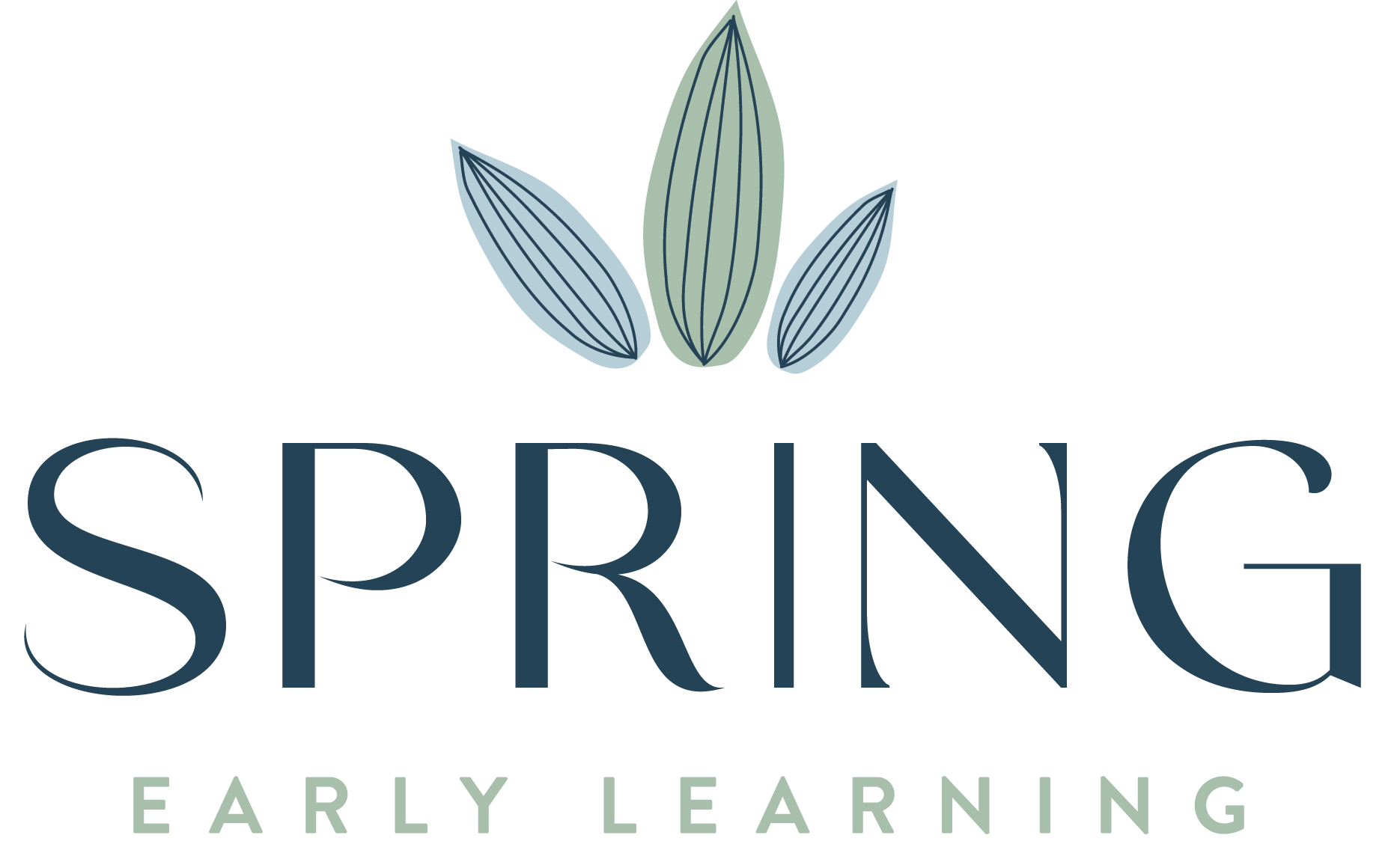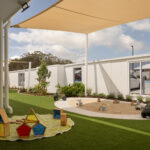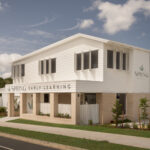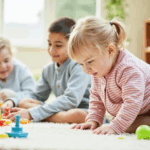Deciding when to start childcare is one of the biggest decisions parents face. As families in Narangba prepare for September childcare enrollment and settle back into routine after the winter break, many are wondering: “Is my child ready for daycare?” Understanding the key early learning readiness signs can help you make this important transition with confidence.
At Spring Early Learning, we’ve supported hundreds of families through this milestone, and we know that readiness looks different for every child. Here are the seven most important signs your toddler is ready for daycare, and how our nurturing environment supports each developmental stage.
1. Your Child Shows Interest in Playing with Other Children
The Sign: Your little one lights up around other children, watches them play with fascination, or tries to join in activities at the park or playgroups. They may not know how to share or take turns yet, but they’re drawn to peer interaction.
How Spring Supports This Stage: Our carefully designed play spaces encourage natural social interaction without overwhelming young children. We use mixed-age groupings that allow children to learn from older peers while developing nurturing relationships with younger ones. Our experienced educators facilitate gentle introductions to social play, helping children navigate their first friendships with patience and understanding.
Research shows that positive early social experiences lay the foundation for lifelong relationship skills. We create opportunities for parallel play, cooperative activities, and group experiences that match your child’s developmental level.
2. They Can Communicate Basic Needs and Wants
The Sign: Whether through words, gestures, or a combination of both, your child can express when they’re hungry, tired, need the toilet, or want help. They don’t need to be perfectly verbal – many toddler development milestones include non-verbal communication.
How Spring Supports This Stage: Our educators are skilled in reading and responding to children’s various communication styles. We use visual cues, picture schedules, and simple sign language to support children who are still developing verbal skills. Each child’s communication development is carefully observed and supported through rich language experiences embedded in play.
We maintain low educator-to-child ratios that ensure every communication attempt is acknowledged and responded to appropriately, building your child’s confidence in expressing themselves.
3. Your Child Can Handle Short Separations from You
The Sign: They can play independently for 10-15 minutes while you’re in another room, or they’ve successfully stayed with grandparents or close friends for a few hours without extreme distress.
How Spring Supports This Stage: We understand that separation anxiety in childcare is completely normal and approach it with empathy and proven strategies. Our settling process is tailored to each family’s needs, allowing for gradual transitions that respect your child’s emotional readiness.
Our warm, consistent educators become familiar faces that children learn to trust. We create comfort through predictable routines, special comfort objects, and plenty of engaging activities that help children feel secure and excited about their time with us.
4. They Show Curiosity About Their Environment
The Sign: Your child explores new spaces, asks questions (even if it’s just “What’s that?” repeated endlessly), investigates how things work, or shows sustained interest in activities for several minutes at a time.
How Spring Supports This Stage: Our learning environments are specifically designed to spark natural curiosity. From our sensory gardens to our discovery corners, every space invites exploration and investigation. We follow children’s interests, using their natural curiosity as the foundation for meaningful learning experiences.
Research on early childhood development shows that curiosity-driven learning creates stronger neural pathways than passive instruction. Our approach honors this by providing rich, open-ended materials that can be explored in multiple ways.
5. Your Child Has Some Self-Help Skills
The Sign: They can feed themselves finger foods, drink from a cup with minimal spills, attempt to wash their hands, or help with simple dressing tasks. Perfect independence isn’t necessary – the willingness to try is what matters.
How Spring Supports This Stage: We believe in nurturing independence while providing the support children need to succeed. Our learning spaces include child-sized furniture, accessible materials, and plenty of time for children to practice self-help skills without pressure.
Our educators celebrate every attempt at independence, whether it’s carrying their own plate to the table or putting on their own shoes. This builds the confidence and competence that are essential for school readiness.
6. They Can Adapt to Simple Routines
The Sign: Your child responds well to predictable sequences like bath time, bedtime, or mealtime routines. They may even remind you of what comes next or become upset when routines are unexpectedly changed.
How Spring Supports This Stage: Consistent, nurturing routines are the backbone of our daily program. From our gentle morning arrivals to our calm afternoon departures, children know what to expect and feel secure in the predictability of their day.
We work closely with families to align our routines with your home patterns, making the transition between environments as smooth as possible. Visual schedules help children understand and anticipate what’s coming next, reducing anxiety and building confidence.
7. They Show Signs of Emotional Regulation
The Sign: While tantrums and big emotions are still normal, your child is beginning to respond to comfort, can be distracted from upsets, or shows some ability to calm down with support. They might use words or actions to express feelings instead of only crying.
How Spring Supports This Stage: Our educators are trained in supporting emotional development and use positive guidance techniques that help children learn to identify and manage their feelings. We create a calm, supportive environment where big emotions are welcomed and worked through with patience.
Through our social-emotional learning approach, children develop the emotional intelligence that will serve them throughout their lives. We teach coping strategies, help children name their feelings, and provide consistent emotional support.
What If Your Child Isn’t Showing All These Signs Yet?
It’s important to remember that every child develops at their own pace, and not showing all these signs doesn’t mean your child isn’t ready for early learning. Many children develop these skills more quickly once they’re in a nurturing childcare environment with peers and experienced educators.
At Spring Early Learning, we’ve successfully supported children at various developmental stages. Our experienced team knows how to meet children where they are and gently support their growth in all areas.
Preparing Your Child for Their First Day
Once you’ve identified that your child is ready for daycare, preparation becomes key to a successful transition. Here are some ways to help your toddler prepare:
Start Talking About It: Use positive language about their upcoming adventure. Read books about starting childcare and talk about the fun things they’ll do and friends they’ll meet.
Visit Together: A tour of our Narangba centre helps familiarize your child with their new environment before their first day. They can see the spaces, meet their educators, and start building positive associations.
Practice Independence: Encourage self-help skills at home, even if it takes longer. The confidence gained from small successes builds readiness for bigger challenges.
Establish Routines: If your home routines are very different from typical childcare schedules, gradually adjust meal and nap times to align better with centre routines.
How Spring’s Environment Nurtures Every Stage of Development
Our Narangba early learning centre is thoughtfully designed to support children at every developmental stage. Whether your child is taking their first tentative steps toward independence or confidently engaging with peers, our environment adapts to meet their needs.
Flexible Spaces: Our learning areas can be configured for quiet individual play or group activities, allowing children to choose their comfort level of social interaction.
Natural Materials: We use authentic, natural materials that engage all the senses and support children’s innate desire to explore and learn.
Outdoor Learning: Our extensive outdoor spaces provide opportunities for physical development, sensory exploration, and connection with nature – essential elements for healthy child development.
Responsive Educators: Our qualified early childhood professionals observe each child carefully, adapting their approach to support individual needs and interests.
The Benefits of Starting Early Learning at the Right Time
When children start early learning at their optimal readiness point, the benefits are significant and long-lasting. They develop stronger social skills, increased confidence, better emotional regulation, and a positive association with learning that serves them throughout their educational journey.
Studies consistently show that high-quality early learning experiences contribute to better academic outcomes, stronger social relationships, and improved life outcomes well into adulthood.
Making the Decision: Trust Your Instincts
As you consider QLD childcare options for your family, remember that you know your child best. While these seven signs provide helpful guidance, every child’s journey to early learning readiness is unique. Some children thrive with an earlier start, while others benefit from waiting a bit longer.
The most important factor is finding an early learning environment that will nurture your child’s individual development and support your family’s needs. At Spring Early Learning, we’re committed to partnering with you to ensure your child’s early learning experience is positive, enriching, and developmentally appropriate.
Ready to Take the Next Step?
If you’re seeing these readiness signs in your child and considering your options for early learning centres near you, we’d love to support your family through this important transition. Our team understands the unique needs of families in the Narangba and North Brisbane area, and we’re here to answer your questions and address any concerns.
Every child deserves an early learning experience that honors their individual development while preparing them for future success. At Spring Early Learning, we’re dedicated to providing exactly that – a nurturing, engaging environment where your child can flourish at their own pace.






